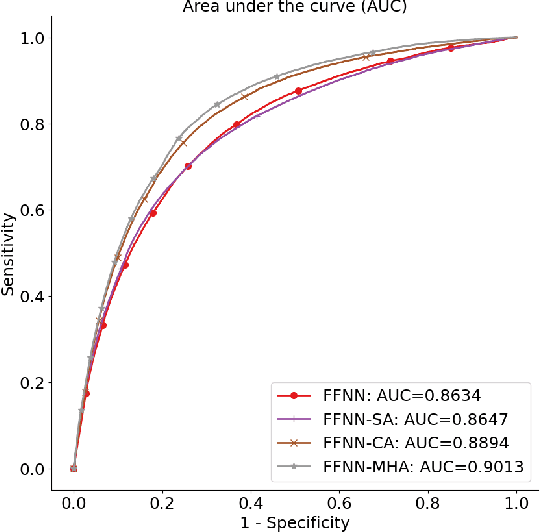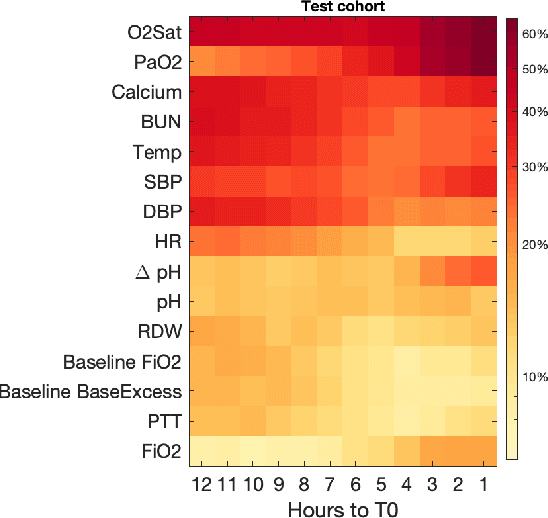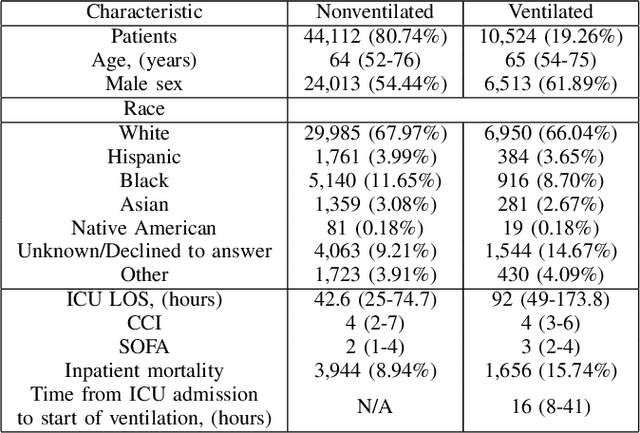Improving Prediction of Need for Mechanical Ventilation using Cross-Attention
Paper and Code
Jul 21, 2024



In the intensive care unit, the capability to predict the need for mechanical ventilation (MV) facilitates more timely interventions to improve patient outcomes. Recent works have demonstrated good performance in this task utilizing machine learning models. This paper explores the novel application of a deep learning model with multi-head attention (FFNN-MHA) to make more accurate MV predictions and reduce false positives by learning personalized contextual information of individual patients. Utilizing the publicly available MIMIC-IV dataset, FFNN-MHA demonstrates an improvement of 0.0379 in AUC and a 17.8\% decrease in false positives compared to baseline models such as feed-forward neural networks. Our results highlight the potential of the FFNN-MHA model as an effective tool for accurate prediction of the need for mechanical ventilation in critical care settings.
 Add to Chrome
Add to Chrome Add to Firefox
Add to Firefox Add to Edge
Add to Edge